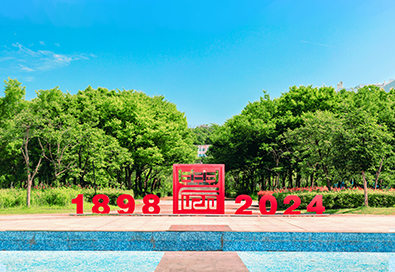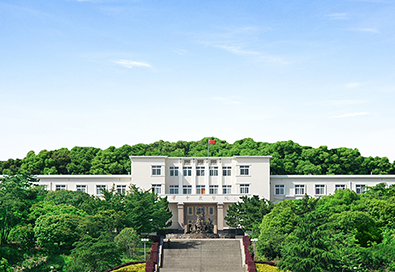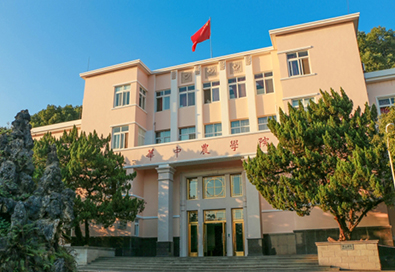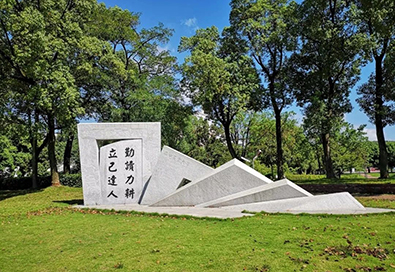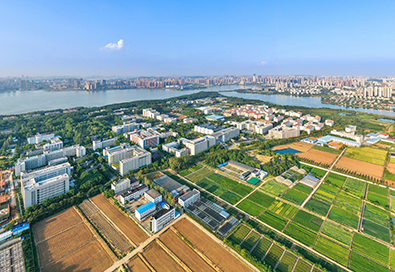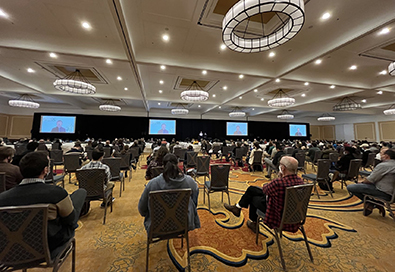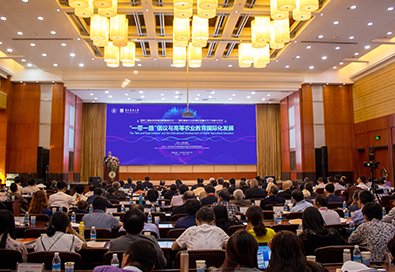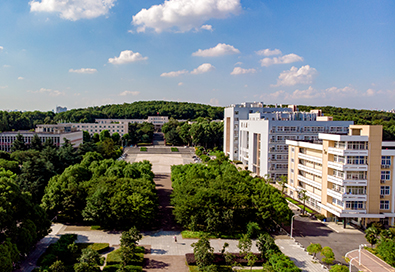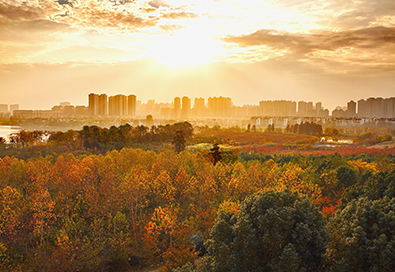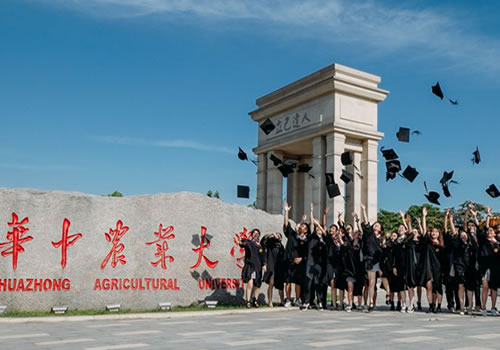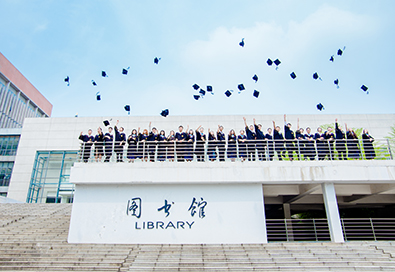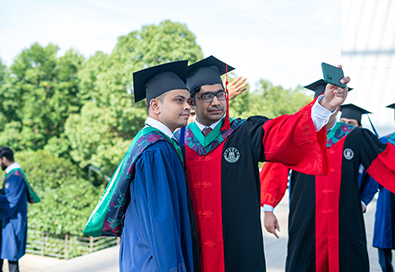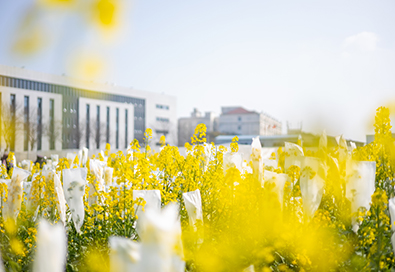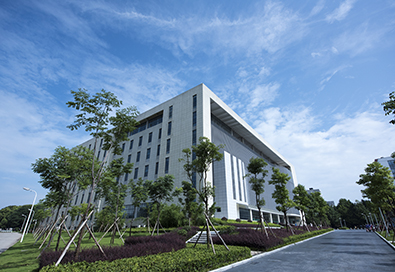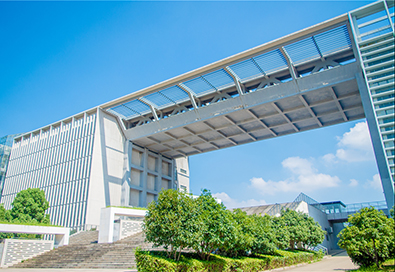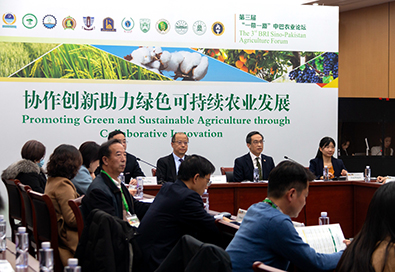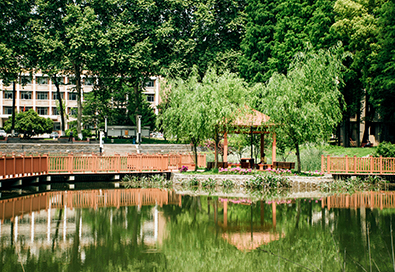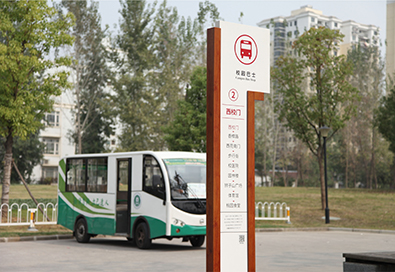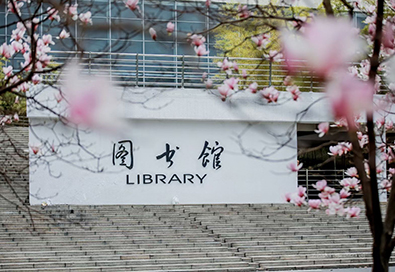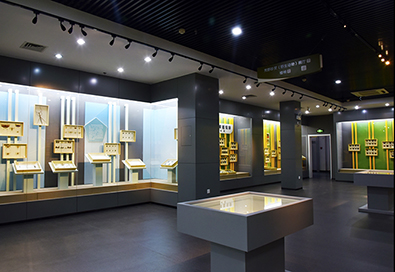On April 26, President Li Zhaohu, along with Zhou Xiong, party secretary of the College of Plant Science & Technology, paid an inspection and guidance visit to the grain base of the father-son trio (Liu Wenbao, and his sons Liu Bin and Liu Jie) in Xiangyang, Hubei province. Li and the delegation learned about the development of his land contracting and management, addressed the need for assistance and offered suggestions for future development.
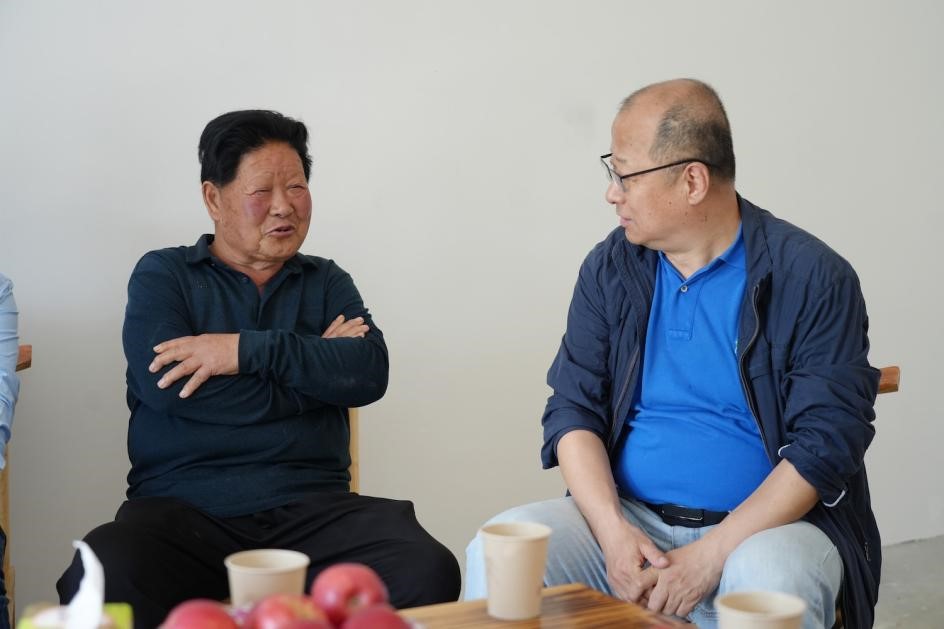
Li Zhaohu chats with Liu Wenbao.
Liu Wenbao, a 78-year-old large-scale farmer in Xiangyang, dedicated to agriculture. In 1989, he was received by the then state heads at Zhongnanhai, headquarters for the central authorities. In 2009, Liu was honored with CCTV Agricultural Figure of the Year 2008. In 2024, the trio won the Outstanding Contribution Award of the second Jia Sixie Agricultural Award in Shouguang, Shandong province, hometown of Jia Sixie, China's ancient renowned agriculturist. On April 21, 2024, they made the headline on Hubei Daily. Liu Bin, alumnus of HZAU, followed in his father’s step after graduation. It was three years ago that they went back to the hometown in Xiangyang and run a family farm, with more than 2000 mu (roughly 330 acres) of fields. In the last two decades, they have repeatedly hit the headlines on Farmer's Daily, one of the most influential media in China.
Li and the delegation estimated the impact of frost damage and recent scab infection by examining the wheat growth in the field. Professors Lan Caixia and Ren Xinfeng, both from the College of Plant Science & Technology, provided suggestions for disease prevention and control.
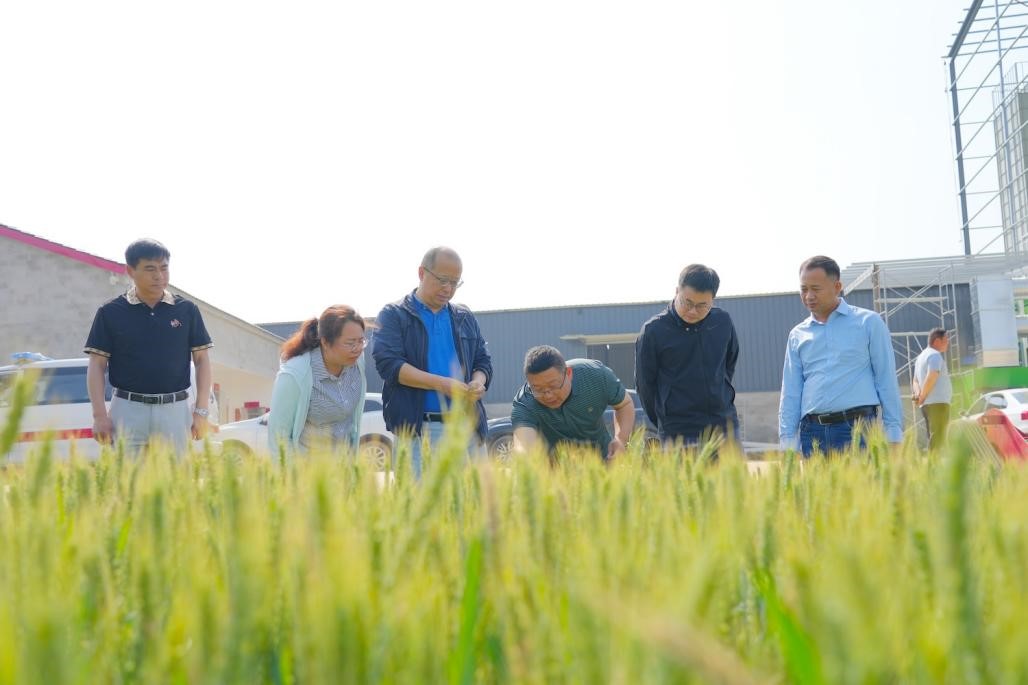
President Li Zhaohu and the delegation examine the growth of wheat.
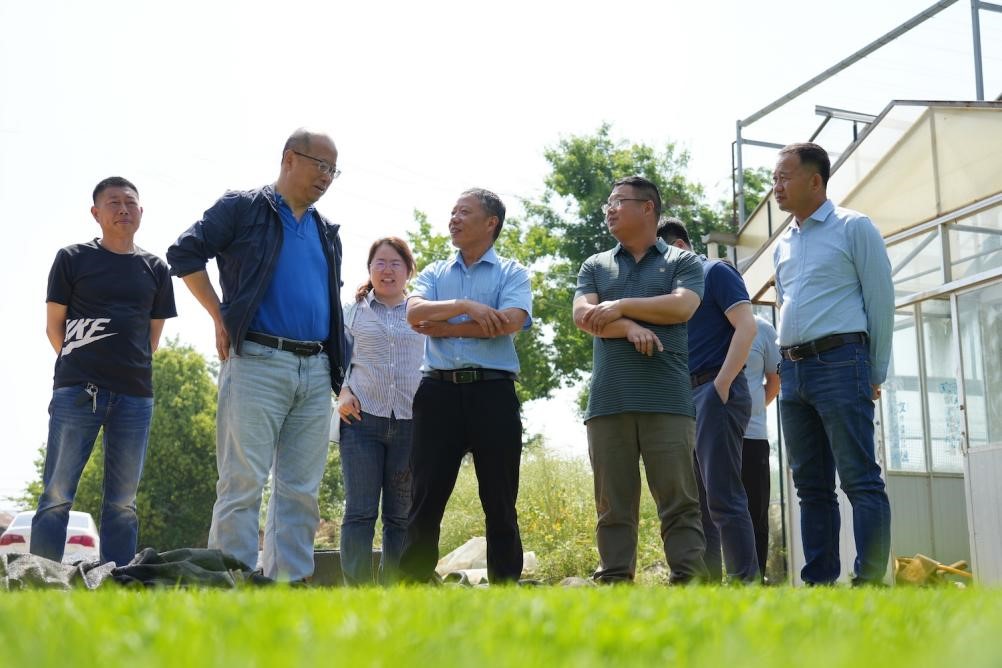
Li Zhaohu and the delegation observe the growth of seedlings.
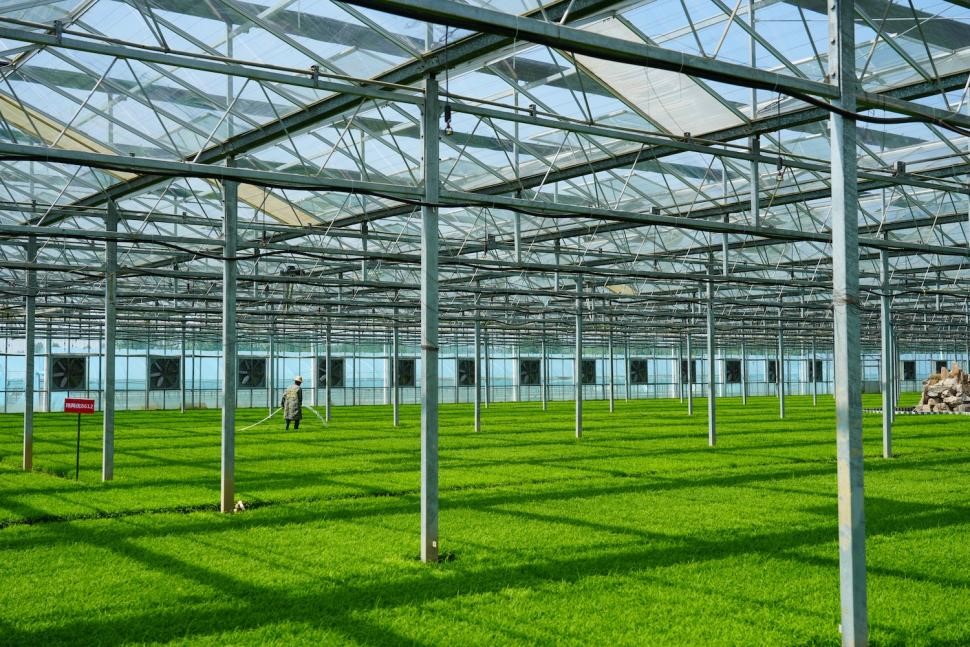
The seedling greenhouse of Liu Bin's family farm
Liu Bin mentioned that after they returned to Hubei from Ningxia Hui Autonomous Region, they leased five pieces of land. In the first year, wheat was sparsely grown with relatively low yield. Last summer, failure to dry wheat in time caused it to go down in quality due to overabundance of rain. Therefore, they made a plan this year—wheat and rice will be grown alternately in the land with available water resources while sorghum will be grown in the fields without sufficient water. Despite of challenges and difficulties, they remain determined.
"Your strength lies in your unwavering dedication and ambition. You're expected to make continuous efforts to expand scale, stabilize output and optimize structure." Li acknowledged Liu Bin and Liu Jie's choice to follow their father in agriculture, and offered suggestions on the seed varieties and methods of grain planting and management. After learning about their needs in seeds, agricultural machinery and policy support concerning spring management, Li stated that the government, the University and the private sectors would join hands to support them.
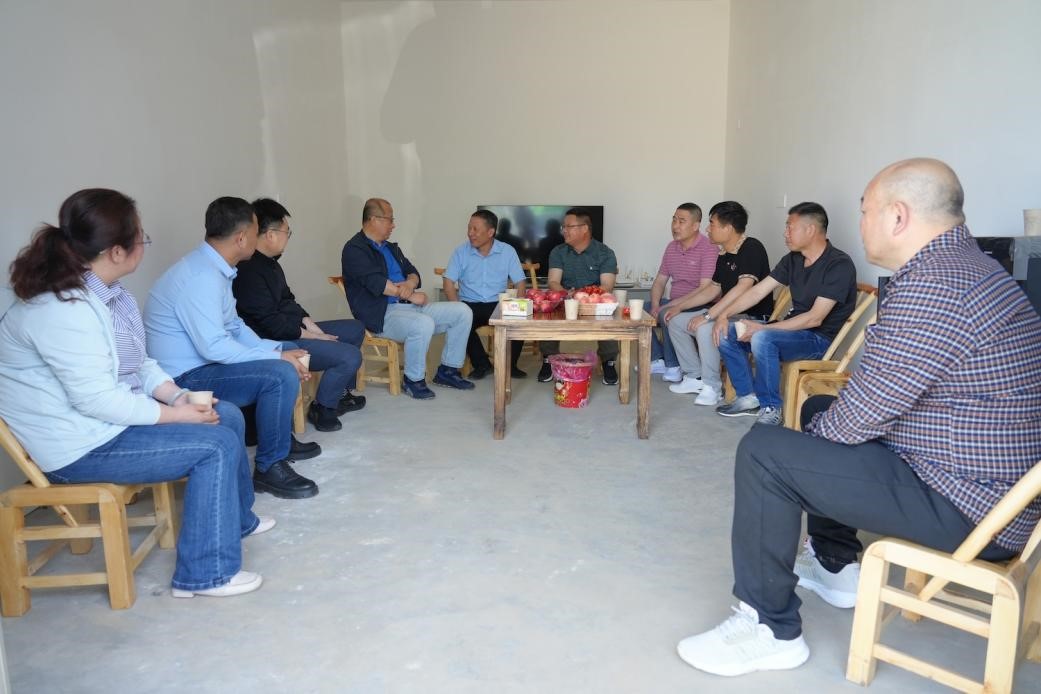
Li and the delegation chat with Liu Bin and local officials.
"Liu Bin, a modern farmer aided by technology, has stayed committed to 'China's food supply remains firmly in its own hand' along with his father, We will spare no effort to support them in grain-planting." Local officials Li Zebing and Mei Kaijun said.
The father's abundant farming experience, coupled with Liu Bin's considerable expertise in agronomy, will give a fresh impetus to their farming endeavors. "We will persevere through hard work and challenges, and reap the ultimate reward of nourishing both the land and the people." he said with determination.
Source: https://news.hzau.edu.cn/2024/0429/69588.shtml
Translated by: Li Xin
Proofread by: He Fan
Supervised by: Guo Haiyan

